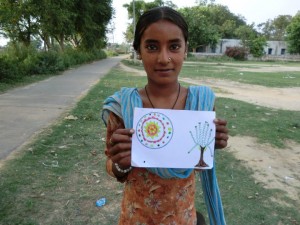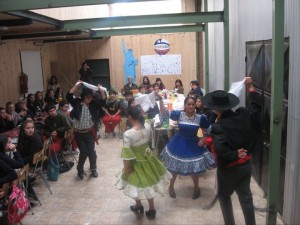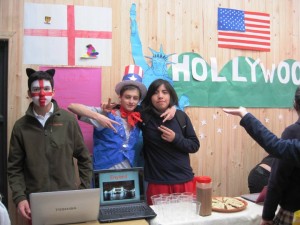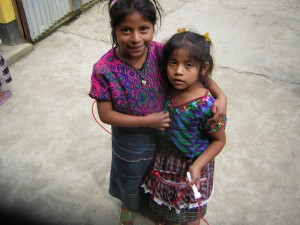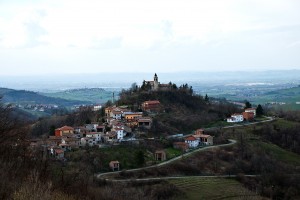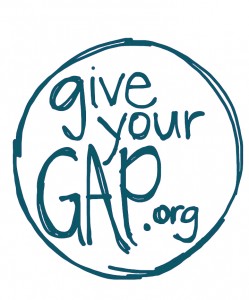 Name: Caryn Oppenheim
Name: Caryn Oppenheim
School: Bowdoin College
Type of Work: Medical/Public Health, Environment/Conservation, Education, Community Development, Arts, Language, Human Rights
Region: North America, South America, Middle East, Asia
Length of stay: 3-6 months
Tell us about the organization you work for and what you do for them.
I interned for a grassroots NGO, EduCARE India, in rural Punjab, India for three months. EduCARE India’s vision is to promote pathways to intellectual freedom, social justice, community welfare, economic liberty, and sustainable development for individuals, families and social groups working to achieve their rationalized life dreams.
Share a favorite memory.
Hannah Wolkwitz, coordinator of health day, spent weeks organizing transportation, supervision, and free check-ups with local hospitals for the Trash Pickers community in Adampur. The health day was realized several days before her departure from EduCARE. The Trash Pickers community suffer from constant health problems due to poor sanitation, water, and other conditions in which they live. The goal for the health day was to complete a general physical for the majority of the community, numbering around thirty people. An English student and friend of EduCARE’s, Sukhjinder Singh, extended a helping hand, as usual, by transporting, in multiple shifts, the community to both locations. After initial disorganization and delay at the Lion’s Club during the first shift, interns developed a system to oversee that each person would be attended to. At the Civil Hospital the children bravely beared finger pricks. I sat with several of the adorable little ones in my lap, while they got their fingers pricked. The community’s dog, Tiger, accompanied them for moral support, at times over-extending that support by lounging in the lobby. Although my main responsibilities as an intern did not involve work with the Trash Picker and Snake Charmer migrant communities, I enjoyed visiting their camps and assisting with education and sanitation lessons. After a long exhausting day witnessing the joy of the children, the personalities of the buffalos, kittens, puppies, goats, and chickens, and the resilience and modesty of the adults rejuvenated my spirit. Even without language sharing we could communicate in smiles, play, and hand gestures. I will always remember Krishan, a young bright boy from the community, journeying to our office before I left and sitting in my chair with me. He had drawn a mustache on his face—a face I will not forget.
What have you learned from your experience? How has it affected your long-term goals?
The opportunity of interning for EduCARE allowed me to gain more practical grassroots experience related to many different overlapping social projects. The independence and responsibility I enjoyed in several social fields made me realize I should broaden my future career scope and consider social work. My job role as the Communications Manager has renewed my interest in Communications and encouraged me to look for a more creative approach to a career. I have improved my team work skills and gained knowledge of what makes an organization successful. In addition, I developed adaptation skills due to living and working in a culturally and physically challenging environment. I have always valued clear communication and witnessed the importance of it firsthand this summer in my internship.
What is the most challenging part of your job?
Living and working in a climate, culture, and NGO management system different than one’s own country required adjustments. In rural Punjab transportation is an adventure in and of itself. Many see foreigners and money as synonymous and see foreign women as candy. It took time to get used to existing uncomfortably in terms of the heat, bugs, and water supply. Cultural concepts on bill paying and communication are treated differently in India as well. Despite these experiences, I consider my time in India one of my most worthwhile adventures. When I think of India I think of vibrant colors, decorative fabrics, resilient and playful people, breathtaking vistas, and life changing wildlife. My fellow interns, who inspire me with their travels, interests, and dedication, remain one of my most valued keepsakes.
Do you have any advice for prospective gappers?
Travel the road less traveled and do so with an open mind, flexibility, and as few expectations as possible. It is to your advantage to work abroad with a feeling that you may offer something to the program, but more likely your experience will change you. Learn as much as you can and document your time through pictures, blogs, writing, and other forums. If you are fortunate enough to be able to do some type of gap experience take full advantage of all the people and places you connect with— time moves quickly. Future employers may value the skill sets and knowledge that you developed.



